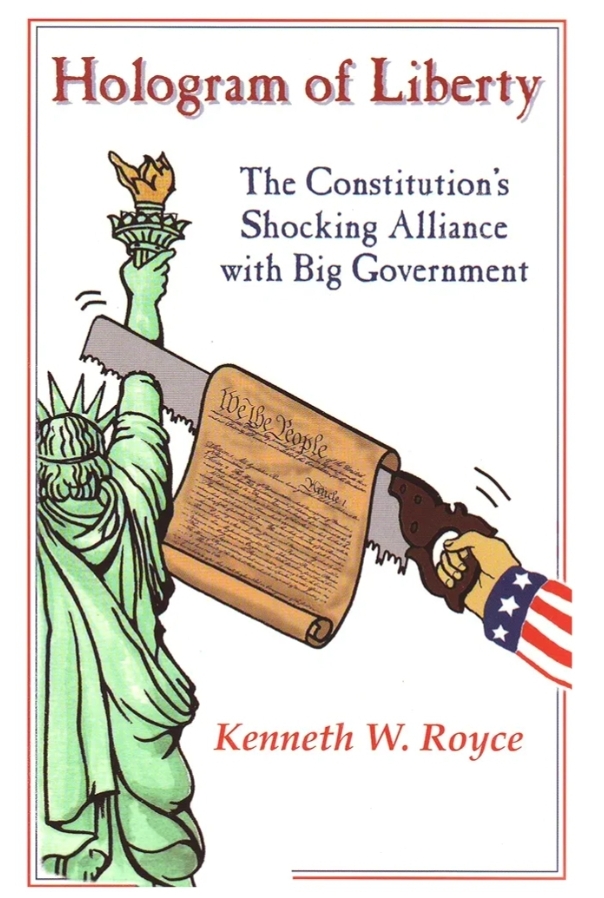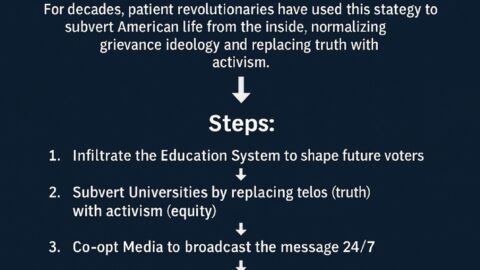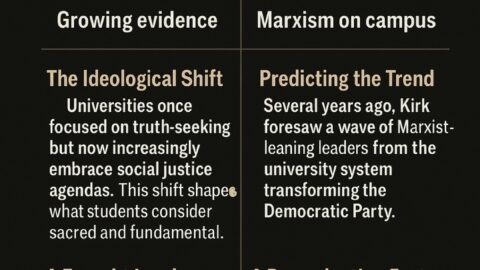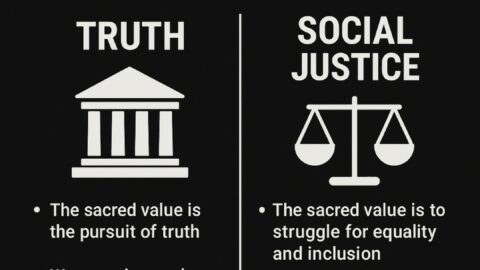Hologram of Liberty: The Constitution’s Shocking Alliance With Big Government by Kenneth W. Royce, writing under the pseudonym Boston T. Party, is a critical examination of the U.S. Constitution and its role in the expansion of federal government power. Royce argues that the Constitution, rather than being a document designed to protect individual liberties and limit government, was intentionally crafted to allow for the growth of a powerful, centralized state. He claims that this has led to the erosion of personal freedoms over time.
The book challenges the mainstream view of the Constitution as a safeguard of liberty, instead portraying it as a “hologram”—a deceptive illusion that conceals its true purpose of expanding federal authority. Royce explores historical events and constitutional law to support his thesis that the Constitution was deliberately designed to enable, rather than restrict, big government.
Key Themes:
- The Constitution as a Trojan Horse: Royce’s central argument is that the U.S. Constitution was never meant to limit the federal government as commonly believed. Instead, it was crafted as a “Trojan Horse” to subtly empower a centralized authority. He contends that the founding fathers, particularly figures like Alexander Hamilton, were not wholly in favor of limited government and used the Constitution to achieve their vision of a strong, centralized state.
- Criticism of Constitutional Federalists: The book critiques the Federalists, such as Hamilton and James Madison, for advocating the Constitution in a way that obscured its true implications. Royce argues that they sold the Constitution to the public as a document that would protect states’ rights and individual freedoms, while in reality, it laid the groundwork for federal overreach.
- The Bill of Rights as a Band-Aid: Royce suggests that the Bill of Rights, commonly seen as the safeguard of personal liberties, was added as a concession to placate the Anti-Federalists and gain their support for ratification. He posits that the Bill of Rights is insufficient in protecting individual freedoms and has been largely ineffective in curbing the growth of federal power over time.
- Federal Government Expansion: The book traces the expansion of federal authority from the early years of the Republic to modern times. Royce points to key historical events, such as the Civil War, the New Deal, and more recent federal policies, as evidence of the government’s increasing control over states and individuals, facilitated by constitutional loopholes.
- Judicial Interpretation and Manipulation: Royce discusses how the judiciary, especially the Supreme Court, has played a significant role in interpreting the Constitution in ways that justify and expand federal power. He argues that judicial rulings often ignore the original intent of the Constitution and instead cater to the interests of a growing government.
- Libertarian Perspective: Royce writes from a libertarian viewpoint, advocating for minimal government and maximum personal freedom. He believes that the Constitution, as it is written and interpreted, is fundamentally flawed in protecting these values. His critique aligns with the views of many libertarians who see government as an inherent threat to individual liberties.
- Call for Constitutional Reforms: The book concludes with Royce calling for a reevaluation of the Constitution and a return to true principles of limited government. He suggests that if Americans wish to preserve their liberties, they must challenge the sacredness of the Constitution and push for reforms that genuinely restrict government power.
Key Takeaways:
- The Constitution as an Enabler of Federal Power: Royce contends that the Constitution, contrary to popular belief, was designed to empower, not limit, the federal government.
- Illusion of Liberty: He argues that the perception of the Constitution as a protector of freedom is a “hologram,” a deceptive image that hides the reality of growing government control.
- Critique of Founding Fathers: Royce criticizes key figures in the founding era for deceiving the public about the true nature of the Constitution and promoting a centralized government.
- Ineffectiveness of the Bill of Rights: The author asserts that the Bill of Rights, while symbolically important, has not been effective in curbing government expansion.
- Libertarian Advocacy: Royce presents a libertarian critique, emphasizing individual freedom and minimal government intervention.
Reception and Criticism:
Hologram of Liberty is a controversial and provocative book that challenges widely held beliefs about the U.S. Constitution. Libertarians and critics of big government have praised the book for its bold arguments and thorough historical analysis. However, it has also faced criticism from constitutional scholars and historians who argue that Royce oversimplifies the intentions of the founding fathers and presents a one-sided view of constitutional history.
Critics of Royce’s work also note that while the book provides an interesting perspective, it lacks nuanced legal analysis and sometimes relies too heavily on speculation about the founders’ intentions. Nonetheless, it has become a notable work within libertarian and anti-big government circles.
Importance:
Hologram of Liberty offers a unique and critical perspective on the U.S. Constitution, appealing to readers who are skeptical of big government power and interested in libertarian thought. It challenges the mainstream narrative and encourages readers to reconsider the foundational document of American government through a more critical lens. Whether or not one agrees with Royce’s conclusions, the book serves as an important contribution to the ongoing debate about the role of the Constitution in American political life.







